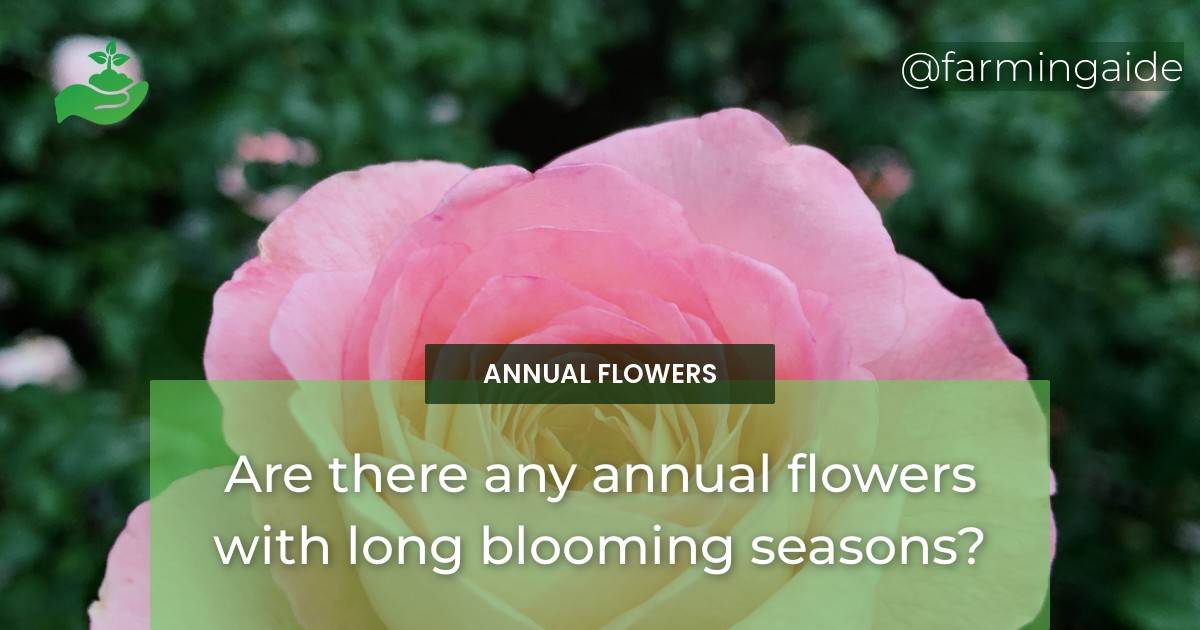Yes, there are several annual flowers that have extended blooming periods, making them a popular choice among gardeners who want to enjoy their colorful blooms throughout the year. These flowers can bloom for several weeks or even months, and they add a vibrant touch to any garden or landscape. Choosing the right annual flowers with long blooming seasons can save you time and money, as they require less replanting and maintenance.
Definition of Annual Flowers
Annual flowers are plants that complete their life cycle within a year. They germinate, grow, flower, produce seeds, and die within a single growing season. These plants are usually used to add color and texture to gardens, planters, and borders. Annual flowers are different from perennial plants that can live for several years and return year after year.
Characteristics of Annual Flowers with Extended Blooming Periods
Several factors contribute to the prolonged blooming period of annual flowers, including:
Sunlight Requirements
Annual flowers that require full sun exposure tend to have long blooming seasons. They need at least six hours of direct sunlight to bloom properly. These flowers include marigolds, zinnias, and petunias.
Watering Needs
Annual flowers with extended blooming periods require consistent watering to keep the soil moist. Overwatering can cause root rot, while underwatering can cause the flowers to wilt and die. It is essential to water the flowers at the base to avoid damaging the blooms.
Soil Conditions
Annual flowers thrive in well-draining soil that is rich in organic matter. The soil should have a pH range of 6.0 to 7.0, which is slightly acidic to neutral. Adding compost or other organic matter can help improve the soil quality and provide essential nutrients for the flowers.
Deadheading and Pruning
Deadheading is the process of removing spent blooms from annual flowers. This process can help encourage more blooms and extend the blooming period. Pruning can also help shape the plant and promote new growth. It is essential to use clean, sharp scissors or pruning shears to avoid damaging the plant.
Examples of Annual Flowers with Long Blooming Seasons
Marigolds
Marigolds are a popular choice for gardeners who want a low-maintenance flower that can add color and texture to their landscape. These flowers come in various colors, including yellow, orange, and red. They require full sun exposure and well-draining soil. Deadheading can help extend their blooming period, and they can bloom for up to eight weeks.
Petunias
Petunias are another popular choice for annual flowers with long blooming seasons. These flowers come in various colors, including pink, red, and purple. They require full sun exposure and well-draining soil. Deadheading can help encourage new growth and extend their blooming period, which can last up to six months.
Zinnias
Zinnias are a colorful and versatile flower that can grow up to three feet tall. They come in various colors, including yellow, red, and pink. Zinnias require full sun exposure and well-draining soil. Deadheading can help extend their blooming period, and they can bloom for up to twelve weeks.
Can Annual Flowers with Variegated Foliage Also Have Long Blooming Seasons?
When it comes to variegated annual flower foliage, some varieties can indeed have long blooming seasons. Certain annual flowers with variegated leaves, such as coleus and impatiens, can produce colorful blooms for an extended period, adding visual interest to the garden throughout the growing season.
Conclusion
Annual flowers with extended blooming periods are a great option for gardeners who want to add a colorful touch to their gardens throughout the year. These flowers require proper sunlight, watering, soil conditions, and pruning to achieve their full potential. Choosing the right annual flowers with long blooming seasons can save you time and money and provide a vibrant and lively garden all year round.


